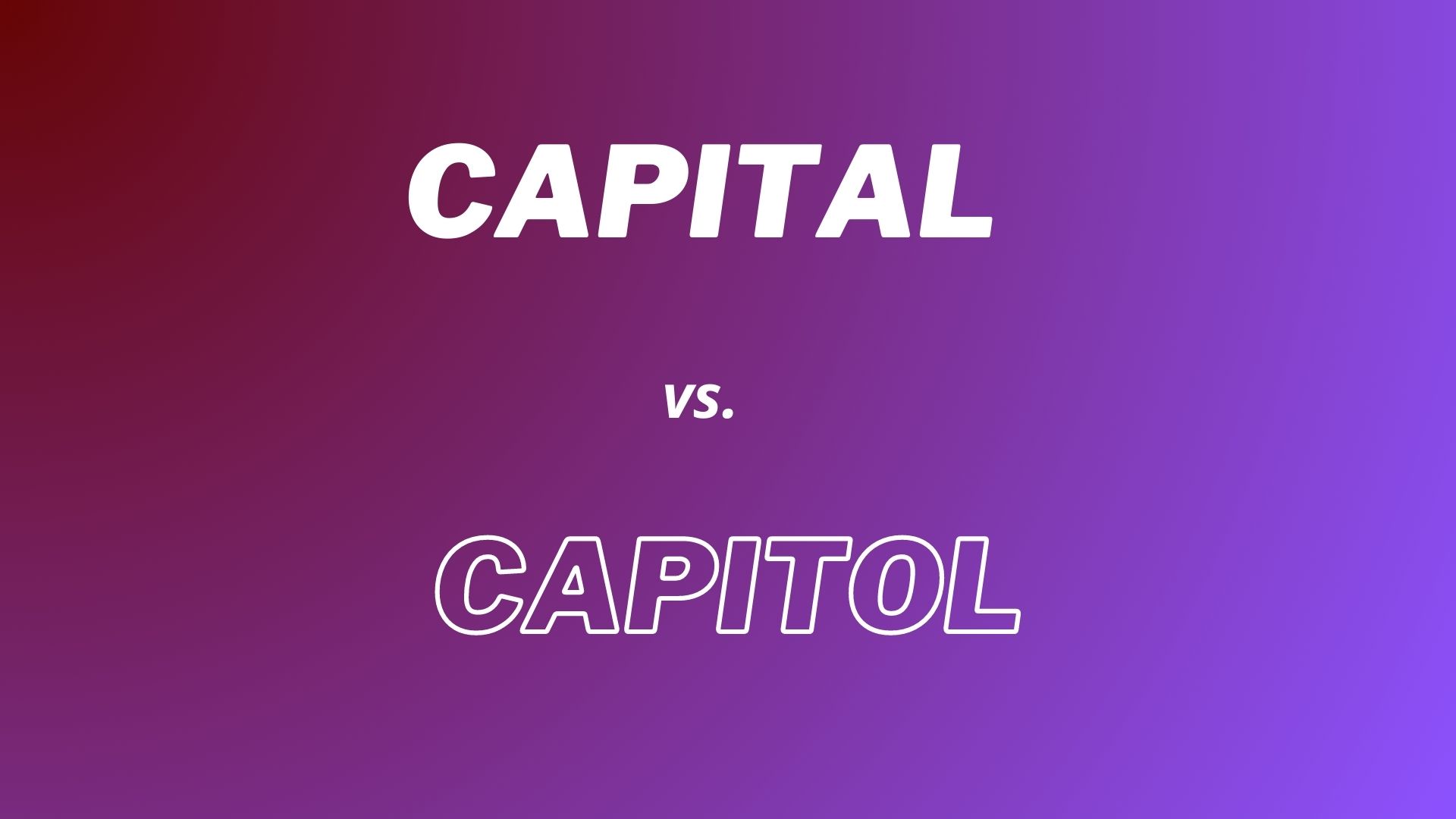

"Capital" and "capitol" are two words that are often confused in English, including American English. They are homophones, which means they sound the same but have different meanings and uses. This article will discuss their differences and provide examples of their correct usage.
"Capital" can be used as a noun or an adjective. As a noun, it refers to the city or town that serves as the seat of government. For example, Washington, D.C., is the capital of the United States. As an adjective, it can describe something related to the seat of government or something of primary importance. For example, a capital offense is a crime punishable by death. "Capital" can also refer to money or wealth. For example, a person's net worth can be referred to as their capital. In economics, "capital" refers to the resources used to produce goods and services.
Noun:
Adjective:
Adjective:
"Capitol," on the other hand, refers to a building where the legislative branch of government meets. It is usually spelled with an "o" and capitalized when referring to a specific building, such as the U.S. Capitol building in Washington, D.C. In this sense, it is often used with the word "building." "Capitol" can also be used as an adjective to describe something related to the legislative branch of government. For example, a capitol reporter is a journalist who covers news related to the legislative branch of government.
Noun: "The U.S. Capitol building is located in Washington D.C."
Adjective: "The capitol police are responsible for protecting the legislative branch of government."
|
Capital |
Capitol |
|
A city that serves as the seat of government |
A building where the legislative branch of government meets |
|
Something of primary importance |
Relating to the legislative branch of government |
|
Money, wealth, or resources |
|
Learning the difference between "capital" and "capitol" is vital for ESL students who want to improve their grammar and vocabulary. Teachers can use various methods to teach their students the correct usage of these words. One effective strategy is to provide examples of the two words in context and have students identify which term is used correctly. Teachers can also use visual aids, such as pictures of money, capital cities, and famous government buildings worldwide, to help students remember the correct spelling and usage.
Here are six fill-in-the-blank questions to help differentiate between "capital" and "capitol":

In conclusion, "capital" and "capitol" are two words that are often confused. When using these two words as a noun or adjective, make sure it is used in the correct context. "Capital" can refer to the seat of government, something of importance, or money and resources used to produce goods and services. "Capitol" refers to the building where the legislative branch of government meets, or something related to the legislative branch of government. With practice, every student can become a proficient English speaker and writer.
Date: March 29th, 2023
 Rob
Rob